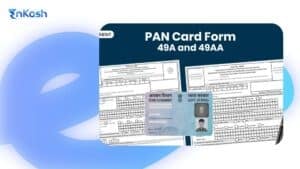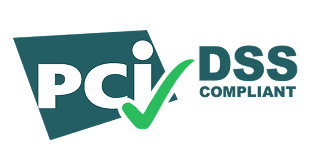Prepaid expense is a payment made in advance for goods or services that a business will receive in the future. In simple terms, prepaid expenses refer to costs paid before the date that are yet to be consumed—such as rent, insurance, or subscriptions. Instead of recording them as immediate expenses, businesses list prepaid expenses as assets because they offer economic benefits in the future.
Understanding prepaid expenses is important for maintaining accurate financial statements, improving cash-flow planning, and ensuring compliance with accounting principles. For businesses of all sizes, correctly managing and recording prepaid expenses helps present a true picture of profitability and financial health.
What are Prepaid Expenses?
Common examples of prepaid expenses include:
- Prepaid rent
- Prepaid insurance
- Prepaid salary
- Subscriptions and software licenses
Advance payments for stock or inventory-related services
Businesses record prepaid expenses under Current Assets on the Balance Sheet, and the value is gradually transferred to the Profit & Loss statement as the benefit is consumed.
Read More: What is Profit and Loss Account?
Characteristics of Prepaid Expenses
Prepaid expenses are advance payments a business makes for goods or services that will be used in the future and therefore are initially recorded as assets. Because the benefit has not yet been received, these payments are recorded as current assets on the balance sheet. As time passes and the service is consumed, the prepaid amount is gradually transferred from an asset to an expense in the income statement.
Key Characteristics:
- Recorded Under Current Assets: Prepaid expenses are typically listed under current assets because the benefit is expected to be used within the next 12 months. If the benefit extends beyond a year, the portion relating to later periods may be classified as a non-current asset.
- Future Economic Benefit: The company pays today but enjoys the benefit later—this makes prepaid expenses a valuable short-term asset.
- Expense Recognition Over Time: Instead of recording the full amount as an expense immediately, it is recognized gradually based on the service period.
- Improves Financial Accuracy: Helps match expenses with the correct accounting period and ensures more accurate profit calculation.
- Common Examples: Prepaid rent, prepaid insurance, prepaid advertising, prepaid salaries, and prepaid maintenance services.
This clear breakdown helps businesses understand how prepaid expenses support accurate financial reporting, cash-flow planning, and compliance with accounting standards.
Read more: What are Assets and Liabilities?
Importance of Proper Accounting for Prepaid Expenses
After understanding what prepaid expenses are, it is important to see why they matter. Accurate financial reporting and accrual accounting are essential when dealing with prepaid expenses. Under the accrual method, costs should be recognised in the period in which the related benefit is consumed, rather than when the cash is paid. This way, companies can effectively match their expenses with the periods when they generate revenue.
Let’s find out why prepaid expenses are important:
- Accurate Financial Reporting: Prepaid expenses allow businesses to avoid overstating their expenses and recognize their assets. Deferring the recognition of costs helps the company to match the expenses with the correct accounting periods.
- Proper cash flow: The advance payments made by a company may provide it with discounts and better manage its cash flow, or get favorable deals.
- Budget Forecasting: It becomes easier to manage the future cash outflow by knowing the amount prepaid and the available balance.
- Compliance with Accounting Standards: Consistently and accurately recording the prepaid expenses helps the company comply with applicable accounting standards, such as Generally Accepted Accounting Principles (GAAP) or International Financial Reporting Standards (IFRS).
Also read: How to track business expenses?
What are the Differences between Prepaid Expenses and Accrued Expenses?
Basis of Difference |
Prepaid Expenses |
Accrued Expenses |
|---|---|---|
Meaning |
Payments made in advance for goods or services to be used in the future. |
Expenses incurred but not yet paid by the business. |
Accounting Treatment |
Treated as a Current Asset as the benefit is yet to be received. |
Treated as a Current Liability as payment is due. |
Expense Recognition |
Recognized when the service or benefit is consumed. |
Recognized immediately when the cost is incurred. |
Cash Flow Impact |
Cash outflow happens before availing the service. |
Cash outflow happens after the service is consumed. |
Examples |
Prepaid rent, prepaid insurance, prepaid salary, and software subscriptions. |
Salaries payable, interest payable, utilities payable, taxes payable. |
Shown in Financial Statements |
Recorded under Current Assets in the Balance Sheet. |
Recorded under Current Liabilities in the Balance Sheet. |
Position in Trial Balance |
Appears on the Debit side (asset). |
Appears on the Credit side (liability). |
Nature |
Represents advance payments. |
Represents outstanding obligations. |
Timing of Payment |
Payment occurs before the expense is realized. |
Payment occurs after the expense is realized. |
What are the Different Types of Prepaid Expenses
There are several types of prepaid expenses, as discussed below:
Type of Prepaid Expense |
Description |
How It Is Treated in Accounts |
Common Use Cases |
|---|---|---|---|
Prepaid Insurance |
Advance payment for insurance policies such as health, fire, vehicle, or business insurance. |
Recorded as a current asset until the insurance period expires. |
Annual insurance premium, company asset insurance, and commercial liability insurance. |
Prepaid Salary |
Salary paid to employees before the service period is completed. |
Considered a current asset until the employee renders the service. |
Early salary disbursement, advance salary for travel or relocation. |
Prepaid Rent |
Rent paid in advance for office, warehouse, or retail space. |
Shown as a prepaid asset and expensed monthly. |
Office lease, commercial property rental, warehouse rent. |
Prepaid Utilities / Services |
Advance payment for utilities like electricity, internet, maintenance, or subscriptions. |
Initially recorded as a prepaid expense and expensed as used. |
Internet bills, AMC contracts, SaaS subscriptions, security services. |
Prepaid Advertising & Marketing |
Payments made in advance for marketing or advertising services. |
Treated as a current asset until the service is delivered. |
Annual ad packages, banner ads, influencer campaigns. |
Prepaid Taxes |
Advance tax payments made before the due date. |
Recognized as a current asset until adjusted against tax liability. |
Advance income tax, TDS advance payments. |
Also read: Differentiating between corporate prepaid cards Vs. corporate credit card
What are Prepaid Expenses in Accounting?
Record the prepaid expenses on the asset side of the balance sheet. When you make an advance payment for a service to be used in the future, it is recorded as a debit to the prepaid expenses account. The amount is credited to cash or accounts payable, depending on how the payment is made.
When the service is used, this asset is reduced through adjusting
the entry, which is called amortization or recognition. The adjusting record debits the expense account and credits the prepaid expense account.
This process allocates the prepaid expenses over the period when the benefit is leveraged. This ensures accurate financial recording and correct matching of expenses with the revenue or benefit period.
Prepaid Expenses Journal Entry
1. When the Prepaid Expense Is Paid (Initial Entry)
Example: Company pays ₹60,000 for 6 months of prepaid rent.
Account |
Debit (₹) |
Credit (₹) |
Prepaid Rent (Asset) |
60,000 |
— |
Cash/Bank |
— |
60,000 |
2. When the Expense Is Used (Monthly Adjustment)
Example: Monthly rent used: ₹10,000 (₹60,000 ÷ 6 months)
Account |
Debit (₹) |
Credit (₹) |
Rent Expense |
10,000 |
— |
Prepaid Rent |
— |
10,000 |
3. Year-End or Period-End Adjusting Entry
Example: If only 4 months are used (₹40,000), the remaining prepaid is ₹20,000.
Account |
Debit (₹) |
Credit (₹) |
Rent Expense |
40,000 |
— |
Prepaid Rent |
— |
40,000 |
(Ending balance of ₹20,000 stays in the Prepaid Expense account as a current asset.)
Also read: What are the different types of expenses in a business?
How to record prepaid expenses in the balance sheet?
Prepaid expenses are recorded as current assets on the balance sheet. They are listed under the “Asset” section, and the subcategory will be “Current assets”. The prepaid expenses are considered current assets because the amount is paid in advance, but they have not been consumed yet.
How to manage Prepaid Expenses?
Managing prepaid expenses is crucial for companies to maintain their financial stability. Here are a few tips that can be useful in managing the prepaid expenses of the company:
- Establish an effective system
Establish a system in the company for monitoring and managing the prepaid expenses. It should be responsible for recording details of advance payments, dates, and expiry. - Conduct periodic reviews and audits
Keep conducting a timely audit of the prepaid expenses to ensure that the expenses align with the business needs. Analyze the prepaid service used to know which resources are underutilized and where you can get the opportunity for cost optimization. - Cash flow optimization and budgeting
Properly managing prepaid expenses ensures effective cash flow optimization and budgeting. Forecasting the upcoming prepaid outflows allows companies to plan expenses and ensure the fund availability for other expenditures. - Regular review and reconciliation
Consistently reviewing and reconciling the prepaid expenses with the financial records of the company allows for maintaining accuracy and transparency. It eliminates discrepancies. - Record keeping and documentation
Your company’s financial records must have complete documentation of the prepaid expenses to ease the retrieval and work as evidence during an audit. It allows the company to stay in compliance with accounting standards and regulations. - Adjusting amortization schedules
Keeping track of the amortization of the prepaid expenses allows the company to correctly allocate the cost over the benefit period. Making adjustments in the amortization schedules with the changing circumstances ensures that the expenses are aligned with the service period. - Collaboration with vendors and service providers
Communicate openly with vendors and service providers about the terms of prepaid arrangements. Negotiating longer-term or prepaid contracts can help reduce overall costs.
Conclusion
Understanding what prepaid expenses are, along with their advantages, limitations, and accounting treatment, allows companies to make smarter decisions and optimise their financial resources.
Consistent monitoring and reevaluation of the prepaid expenses ensure efficient resource utilization and alignment with the business needs. Managing prepaid expenses empowers companies to achieve financial stability and attain growth in a competitive market.
FAQs
1. What are prepaid expenses examples?
The prepaid expense examples include the various scenarios where the company pays for the services in advance. For instance, A software development company pays in advance for a 3-year subscription for an online tool and gets some discount on the total cost.
Let’s take one more prepaid expenses example, suppose a company is paying 2 years’ advance premiums to the insurance provider to safeguard the company against any potential risk.
2. What do prepaid expenses mean?
Prepaid expenses are any payments made by the company for services or goods that it will use in the future. For example, buying advance subscriptions, advance rent payments, etc.
3. Is prepaid an expense or revenue?
Prepaid expenses cannot be considered as revenue. They are categorized as current assets until they are consumed by the company.
4. How are prepaid expenses different from deferred expenses?
In prepaid expenses, companies pay an advance payment for the service. On the other hand, under deferred expenses, costs are incurred but recognized as expenses in the future.
5. Explain the journal entry for prepaid expenses.
When you record a prepaid expense, you debit the prepaid expense account and credit cash or a bank account. As the benefit is used, you record an adjusting entry that debits the relevant expense account and credits the prepaid expense account, gradually reducing the asset.
6. Where do we show Prepaid Expense in the Balance Sheet?
Prepaid expenses are shown under the Current Assets section of the balance sheet. Since the company expects to receive the benefit within the next 12 months, prepaid expenses are usually treated as current (short-term) assets. If the benefit extends beyond a year, the longer-term portion may be classified as a non-current asset.
7. Is Prepaid Expense a Current Asset?
Yes, prepaid expense is a current asset because it represents advance payments for services that will be consumed within the next 12 months. These expenses are gradually transferred to the expense account as the benefit is received.
8. Are Prepaid Expenses Assets or Liabilities?
Prepaid expenses are recognised as assets, not liabilities, because the business has already paid but still has the right to receive future economic benefits.
9. How to Calculate Prepaid Expense?
Prepaid expense is calculated by determining the unused portion of an advance payment.
Formula:
Prepaid Expense = Total Amount Paid – Expense Used for the Period
Example:
If you pay ₹24,000 for 12 months of insurance and 3 months are used, the unused prepaid is: ₹24,000 – ₹6,000 = ₹18,000
- What is the Difference Between Deferred Expenses and Prepaid Expenses?
Prepaid Expenses |
Deferred Expenses |
Paid in advance for services to be used soon. |
Expenses incurred today but recognized in future periods. |
Treated as current assets. |
Often treated as non-current assets if the benefit extends beyond 12 months. |
Example: Prepaid rent for 6 months. |
Example: Large advertising cost amortized over 3–5 years. |
In short, prepaid expenses benefit the business in the short term, while deferred expenses benefit the business in the long term.
11. What is the Treatment of Prepaid Expense in the Cash Flow Statement?
Prepaid expenses are shown under the Operating Activities section.
- When a prepaid expense increases, cash flow decreases because the company pays in advance.
- When a prepaid expense decreases, there is usually no new cash movement. The reduction reflects that part of the prepayment has now been recognised as an expense.
This ensures an accurate representation of real cash movement in business operations.












